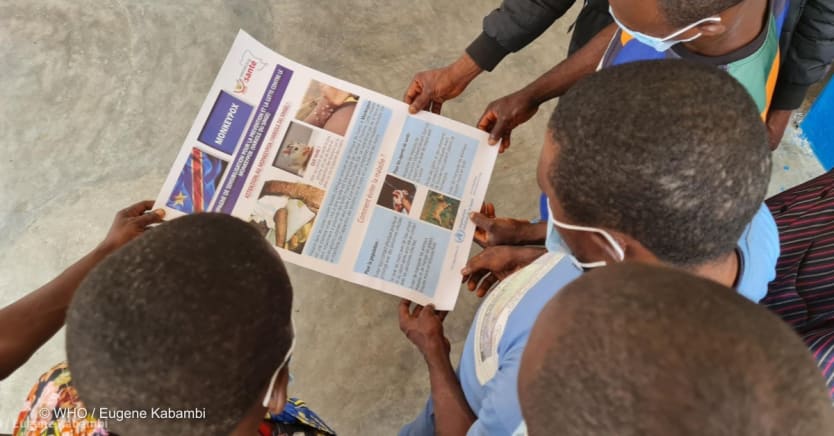
The World Health Organization declared mpox a public health emergency of international concern, or PHEIC, on Wednesday, the second time in about two years. It is the highest level of alarm WHO issues under international health law.
The decision was based on advice from independent experts that WHO Director-General Tedros Adhanom Ghebreyesus convened as part of an emergency committee under the International Health Regulations. The experts considered the upsurge of mpox cases in Africa, including the spread of a new strain via sexual transmission, as an emergency for Africa and the world.
“Mpox, originating in Africa, was neglected there, and later caused a global outbreak in 2022. It is time to act decisively to prevent history from repeating itself,” said professor Dimie Ogoina, chair of the IHR emergency committee on mpox.
The disease was first declared a PHEIC in July 2022, when it spread rapidly in several countries, including in places where it had not been reported before. At that time, Europe became the epicenter of the outbreak and accounted for more than 80% of cases globally. The emergency phase lasted until May 2023, when WHO declared it over amid a sustained decline in global cases.
Africa CDC declares mpox a public health emergency
Cases have risen exponentially in DRC and there’s a concerning spread of cases to countries that haven’t previously been affected.
But mpox cases continued to rise in Africa, Africa CDC Director-General Dr. Jean Kaseya said, including in the Democratic Republic of Congo, where it is endemic. The outbreak in DRC however has become more widespread, and other African countries that have not had mpox before are now reporting cases, including Burundi, Kenya, Rwanda, and Uganda.
According to the Africa Centres for Disease Control and Prevention, there have been more than 17,000 suspected cases across the African continent, more than the total number of cases reported in 2023. Experts worry the burden may be higher, but it is not being detected due to weak surveillance and contact tracing.
The WHO declaration comes a day after the Africa CDC declared the outbreak happening in many parts of Africa as a public health emergency of continental security, hoping it would unlock resources and ensure the continent gets the tools it needs to mitigate the disease’s further spread.
“It’s clear that a coordinated international response is essential to stop these outbreaks and save lives,” Tedros said in his remarks during a press conference declaring mpox as a PHEIC.
He said WHO is providing support to countries together with partners, including providing machines to analyze blood samples, supporting laboratories to sequence viral samples as well as case investigation and contact tracing, risk communication, and community engagement.
WHO is working with countries and vaccine manufacturers for potential vaccine donations. The United States, following the declarations, said it is donating 50,000 doses of the mpox vaccine JYNNEOS to the DRC. The Africa CDC is also working with the European Commission and Bavarian Nordic, the manufacturer of the mpox vaccine, for the provision of over 200,000 doses.
WHO said it has also released $1.45 million from the WHO Contingency Fund for Emergencies to support the response. However, they anticipate the immediate funding needed to be at $15 million.
Search for articles
Most Read
- 1
- 2
- 3
- 4
- 5








